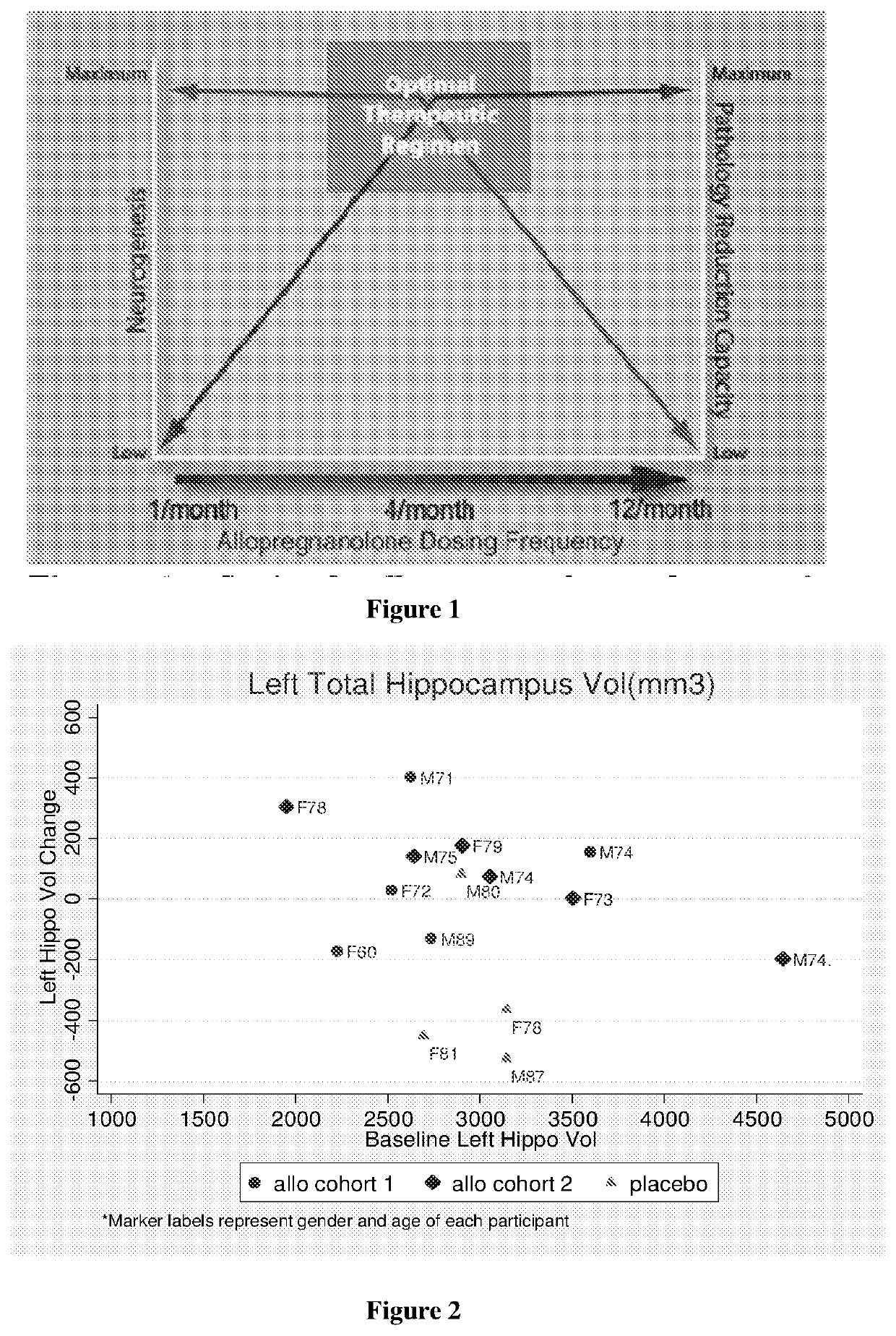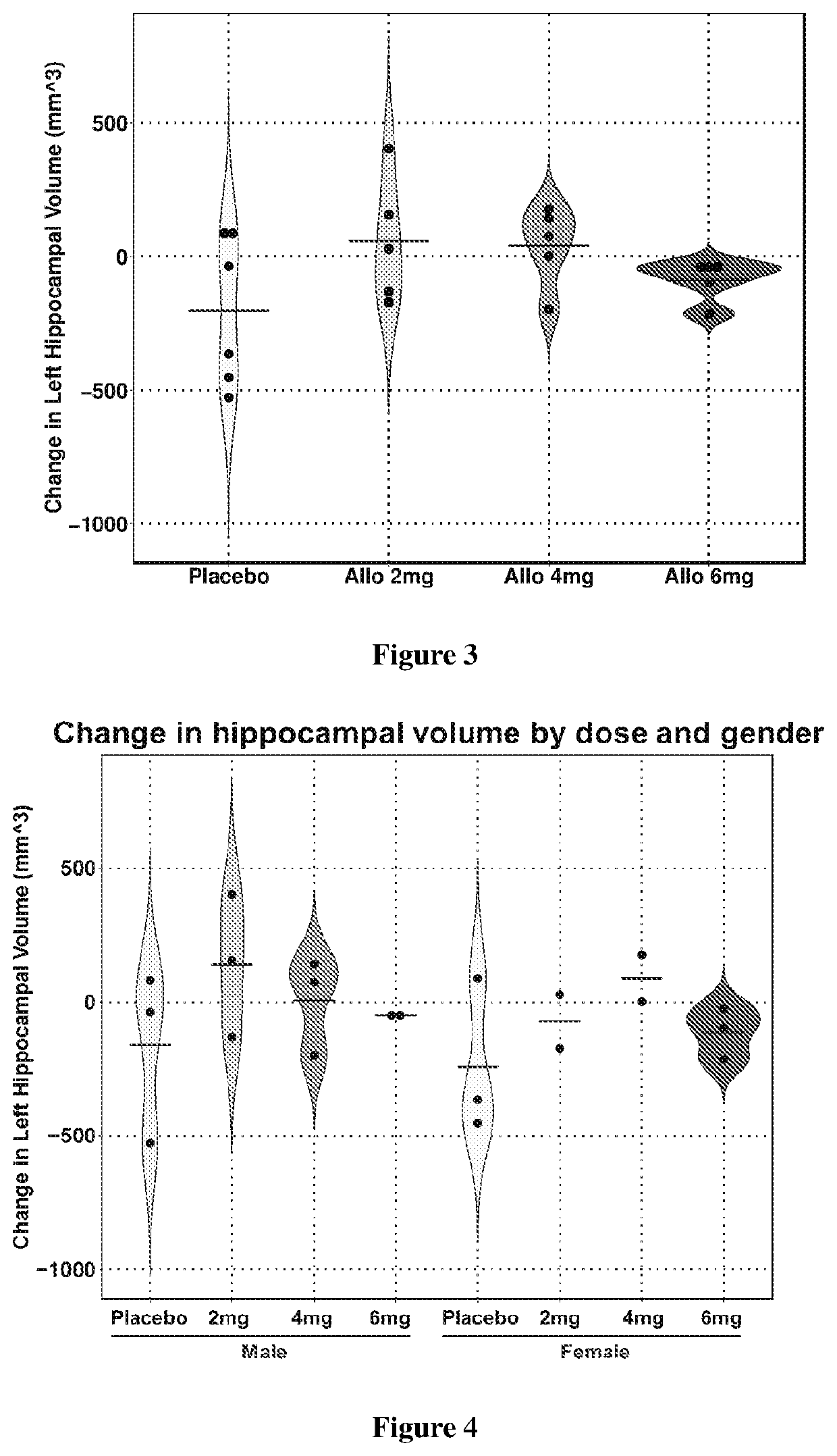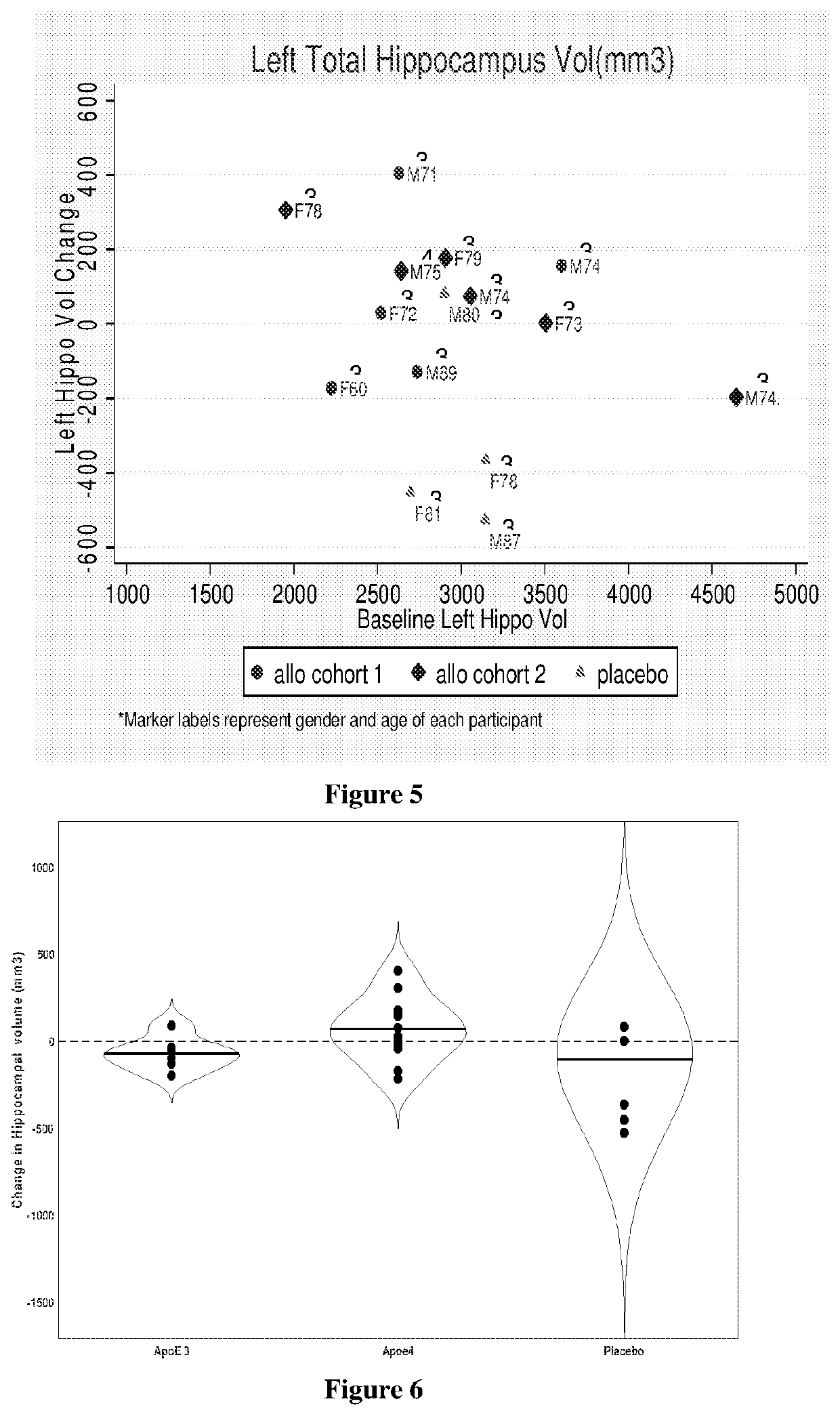Agents, compositions and methods for treating and preventing alzheimer's disease
a technology of compositions and agents, applied in drug compositions, instruments, nervous disorders, etc., can solve the problems of accelerating disease progression, no intervention has demonstrated substantial therapeutic efficacy to prevent, delay or treat, and severely restrict human fetal cell transplantation research. , to achieve the effect of reducing the volume of hippocampus tissue, preventing neuronal loss, and enhancing neurological function
- Summary
- Abstract
- Description
- Claims
- Application Information
AI Technical Summary
Benefits of technology
Problems solved by technology
Method used
Image
Examples
example 1
Trials to Determine Effects of 3α-Hydroxy-5α-Pregnan-20-One (THP) on Hippocampal Neural Cells in Adult Human Subjects with AD
[0125]Allopregnanolone (Allo) is a first in class regenerative therapeutic for delaying progression and treating Alzheimer's disease (AD) with a well characterized mechanism of action, preclinical evidence of efficacy and human safety.
Materials and Methods
[0126]Clinical Trials were carried out in adult humans (see gov Identifier: NCT02221622 for the ongoing Phase 1b / 2a clinical trial at https: / / clinicaltrials.gov / ct2 / show / NCT02221622).
[0127]In both the central and peripheral nervous systems, Allo targets systems of regeneration and cholesterol trafficking in the brain to promote neurogenesis and cognitive function while simultaneously reducing the production of AD pathology or dementia and increasing indicators of white matter generation. Based on extensive preclinical discovery and translational research Allo was tested for activity in reducing and preventing...
example 2
Allopregnanolone on Memory Function in Humanized ApoE3,3, ApoE4,4 and Apo E3,4 Mice
Materials and Methods
[0140]To access impact of Allopregnanolone (Allo) on memory function, humanized ApoE3,3, ApoE4,4 and ApoE3,4 mice were tested using Novel Object Recognition (NOR) in accordance with published literature (Antunes and Biala, Cogn Process. 2012 May; 13(2): 93-110; Ennaceur, Behav Brain Res. 2010 Dec. 31; 215(2):244-54. doi: 10.1016 / j.bbr.2009.12.036. Epub 2010 Jan. 7; Leger et al., Nat Protoc. 2013 December; 8(12):2531-7. doi: 10.1038 / nprot.2013.155. Epub 2013 Nov. 21; Piterkin et al., Learn. Mem., 15 (2008), pp. 785-791; Taglialatela et al., Behav Brain Res. 200(1): 95-99. 2009).
[0141]Behavioral NOR testing was conducted following 24 weekly injections of Allopregnanolone (Allo; 1.5 mg / mL) or saline (0.9%). The Allo and saline used to treat the mice were identical to the Allo and saline used in the clinical trial (ClinicalTrials.gov Identifier: NCT02221622).
[0142]Behavioral testing a...
PUM
| Property | Measurement | Unit |
|---|---|---|
| weight | aaaaa | aaaaa |
| period of time | aaaaa | aaaaa |
| period of time | aaaaa | aaaaa |
Abstract
Description
Claims
Application Information
 Login to View More
Login to View More - R&D
- Intellectual Property
- Life Sciences
- Materials
- Tech Scout
- Unparalleled Data Quality
- Higher Quality Content
- 60% Fewer Hallucinations
Browse by: Latest US Patents, China's latest patents, Technical Efficacy Thesaurus, Application Domain, Technology Topic, Popular Technical Reports.
© 2025 PatSnap. All rights reserved.Legal|Privacy policy|Modern Slavery Act Transparency Statement|Sitemap|About US| Contact US: help@patsnap.com



